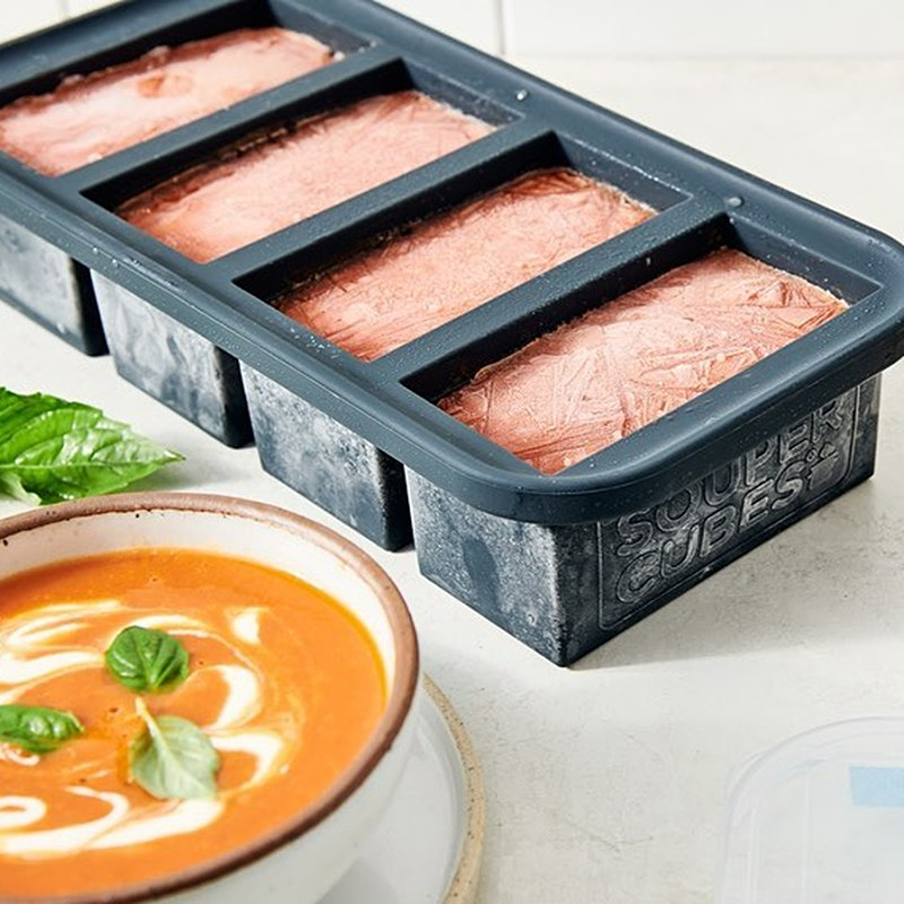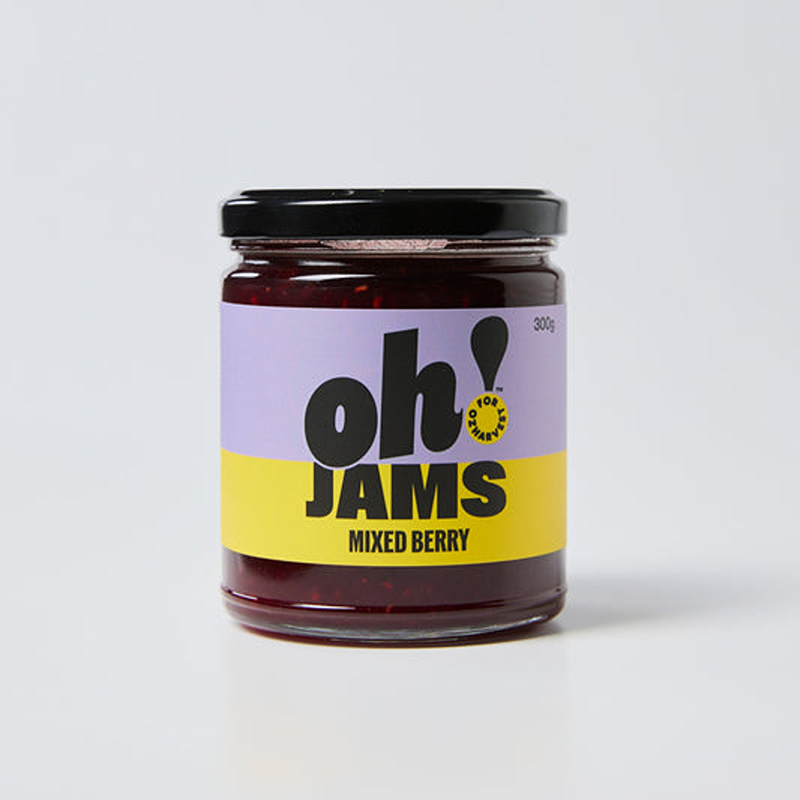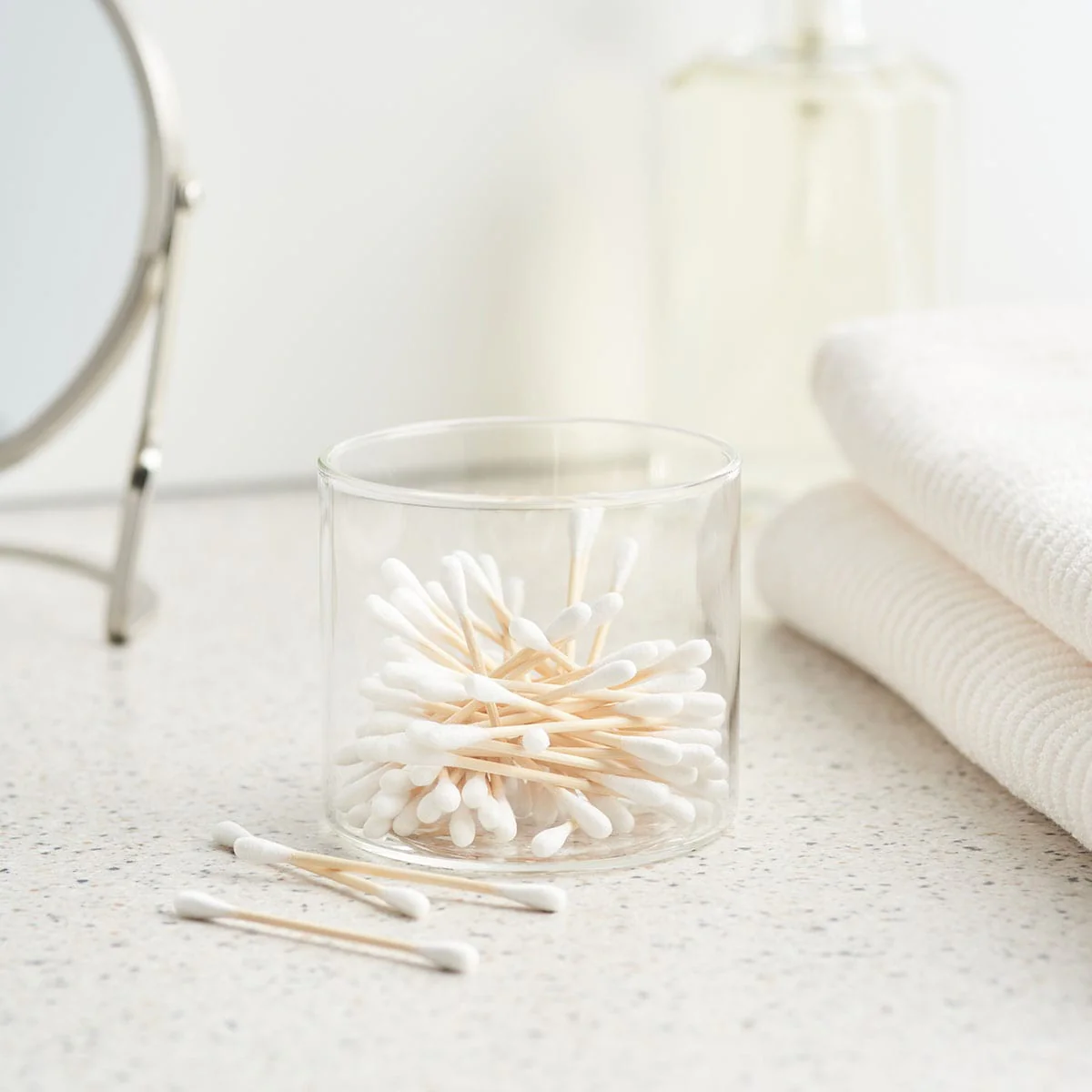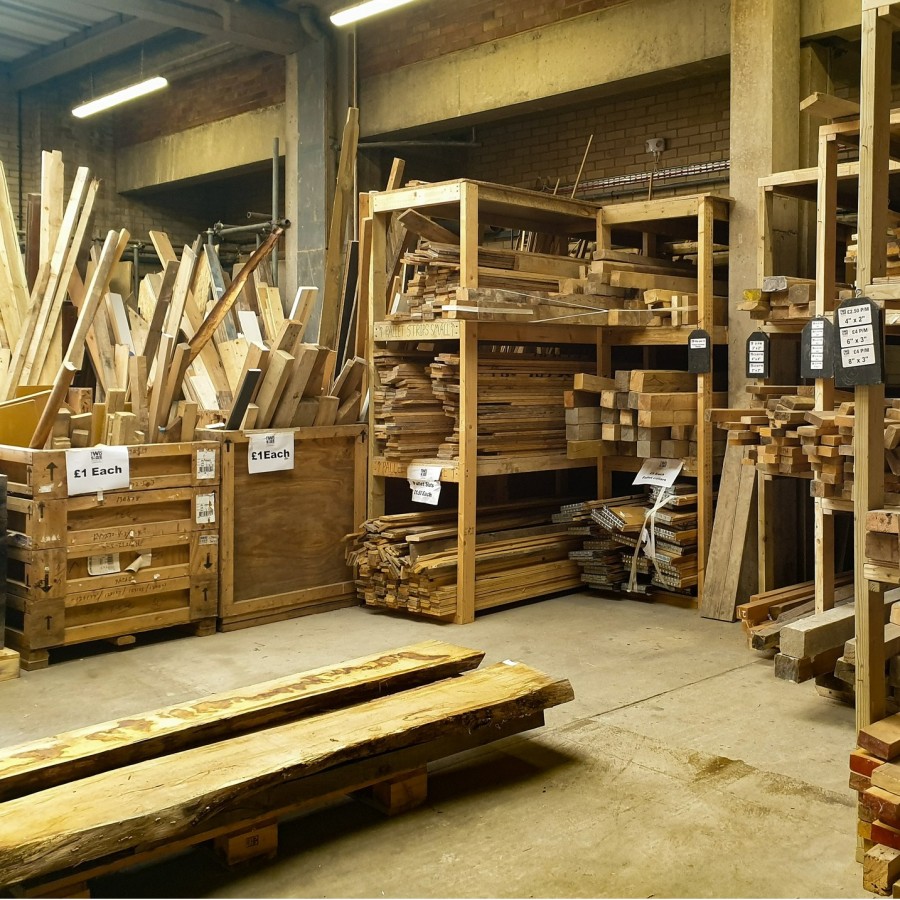Innovative Ideas to Help Prevent Food Waste

Food waste is colossal in England, with the main food waste items being fresh produce, bread and uneaten food. Also read the post about apps to share leftover food.
Freeze Leftovers in Single Portions
Freezers are perfect for keeping leftovers safe and edible. Instead of putting large containers in the fridge, divide cooked meals into single servings, pop them in labelled containers, and freeze them.
SouperCubes are wonderful (made in the USA and sold in Lakeland). You can use them to freeze soup to bread to cakes, and just pop a serving out, when you need.
Store Fruits and Vegetables Properly

Fresh produce can go bad fast if it’s not stored right. Keep bananas and apples away from other fruits, as they release ethylene gas which speeds up ripening.
Use breathable cloth bags for mushrooms, leafy greens, and carrots, and keep them in the crisper drawer to hold in moisture. Herbs last longer with stems in water. Simple tweaks in storage give you more time to eat your fruits and veg.
FreshGlow Sheets are impregnated with organic spices, to help fresh produce and bread last longer. 8 sheets last around 3 months, meaning these pay for themselves in two weeks.

Fresh bread from an indie baker lasts longer, if you live alone or as a couple, just visit and buy a couple of rolls instead.
Plan Meals with Shelf-Life in Mind
Planning meals around use-by dates makes it easy to use up ingredients before they spoil. Check the fridge and cupboards, note what needs to be eaten soon, and plan your meals around those items.
Try putting products with shorter dates at the front so you see them first. A little planning each week helps keep food out of the bin.
Use a “First In, First Out” System
Restaurant kitchens do this for a reason. Place older items in front, newer stuff in the back. Use up what’s there before opening new packs or buying more.
This reduces waste and saves time hunting for hidden ingredients. It’s a simple shift that can quickly cut your food waste in half.
Save Veggie Scraps for Homemade Stock
Don’t toss onion peels, carrot tops, or celery ends. Collect them in a bag in your freezer. When you’ve got a full bag, simmer the scraps in water for a rich, homemade stock.
It adds flavour and uses up parts that often end up in the bin. You get a free ingredient and reduce waste every time.
Get Creative with Leftovers
Leftover items can also go in soups, wraps or pasta sauces. Stale bread makes great croutons or breadcrumbs. Overripe fruit can be blended into smoothies or baked into muffins.
Treat leftovers as ingredients rather than finished meals. With a little imagination, yesterday’s dinner becomes today’s lunch or snack.
Share Surplus with Neighbours or Friends
When you’ve bought too much or will be away, let someone else use it. Share extra produce, baked goods, or pantry staples with neighbours, friends, or local community groups.
Compost What You Can’t Eat
Not everything is edible, but peels, eggshells and other items can go in your compost bin.
The latest research suggests not to compost tea leaves, coffee grounds, rhubarb/tomato/citrus or allium scraps (the onion family including chives), as acids could harm compost creatures. Just bin, to naturally biodegrade.
Choose Zero Waste Veg Boxes
Veg boxes have changed the way many people shop for fresh food. Gone are the days where only perfect-looking carrots or apples made it to the table. Today, veg boxes that fight food waste put taste, sustainability and fresh produce at the heart of what they do.
These boxes pick fruit and veg that supermarkets often reject because it doesn’t look right, wonky or oddly shaped, but still tastes delicious. With more people wanting to reduce food waste, these unique veg box schemes are making a real difference.
Earth and Wheat is a one-stop wonky food market, that sells wonky fresh produce and bread, that would otherwise go to landfill. The grocery store has vegan options, and the bread is suitable for freezing. Produce that arrives here has been ‘rejected’ due to being:
- Too big
- Too long
- Too many
- Wrong colour
- Blemished
- Wonky
- Too thin
So far this company has rescued over 600 tonnes of food waste. A typical box could contain 1.5kg of fresh baked goods (5 different breads) and up to 5kg of fresh wonky veggies. For instance:
Crumpets, tortilla wraps, folded flatbreads, pitta and naan, plus white potatoes, red onions, peppers, cauliflower, cabbage and broccoli.
Wonky Veg Boxes put ‘imperfect’ vegetables in the spotlight. Working with British farms, they pick fruit and veg that would have been rejected by shops for not looking quite right. Box contents change weekly and often include carrots, parsnips, potatoes and apples with odd shapes or little scars.
By buying a box, families get a mix of seasonal veg that’s just as tasty as standard produce. Wonky Veg Boxes aim to help small farmers by buying what they grow and cutting waste on the land. With box sizes for solo eaters or big families, there’s a plan for everyone.
Oddbox takes on surplus or misshapen fruit and veg that supermarkets won’t accept. Working with British growers and importers, they focus their deliveries in London and several other UK cities.
Oddbox sends a fresh box each week, filled with whatever was most at risk of being wasted. It could be twisted cucumbers, double carrots or apples that are too small.
Boxes include notes about the farmers and why each crop needed rescuing. Oddbox also donates a portion of the surplus to local charities, so nothing goes to waste. Their service helps reduce carbon impact and supports growers who might otherwise throw away unsold produce.
How to (legally) Scrump Apples!

Many landowners have large gardens with apple trees, but perhaps not the good health, time or tools to harvest them. So they fall to the ground as windfalls. Some get eaten by wildlife, but the rest just rot away.
Apple chunks are choking hazards for babies and swallowing difficulties. Keep apple pips/seeds/cores away from pets due to natural cyanide.
Ask permission before feeding to equines, as too many cause colic. If given permission, feed cut up from a flat palm, to prevent choking).
Sheffield’s Abundance Network has a fantastic free handbook to download, to cover all you need to know for safe and legal scrumping!
It’s best not to take dogs with you, as fruit pips and seeds contain natural cyanide, and can even cause alcohol poisoning.
- Scrumping networks get a few fit volunteers together with ladders and tarpaulins, then they climb the trees to harvest the apples (or other fruits) and the surplus is shared.
- Usually the landowner receives a third, the pickers receive a third – and any extra or mushy fruits go to the community, like making jam and juice to sell at bake sales.
- Abundance Network says for it’s good to choose gardens with side gates, so you are not walking through people’s homes to get to their fruit. It’s also good to only pick fruit a few days before it’s going to be used, to ensure it doesn’t spoil.
- Also invest in a bit of good equipment like telescopic poles and baskets to drop the ‘shaken apples’. You’ll likely also need liability insurance. You’ll also want comfy bags to carry harvested fruit.
And if making juice, invest in a pasteuriser, to make it safe for people to consume (unless sterilising all the containers yourself:
Heat your oven to 160°C, gas mark 3. Then place jars and lids (which have been washed, rinsed and drained in hot soapy water) in the oven for 15 minutes (remove rubber seals and simmer in water for 10 minutes).
Turn off the heat and then use the jars, while still warm.
French Food Waste Rules are Tougher

Although England has recently brought in more stringent laws for shops and businesses to sort and recycle food waste, these are nowhere near as stringent in France, where food waste is totally illegal.
There is enough food thrown out each year, to feed every hungry person on earth.
Since 2016, it has been illegal for larger supermarkets to throw away edible food. The law pushes retailers to donate unsold items to charities rather than send them to the bin. It is practical, targeted, and sends a message that food has value far beyond its price tag.
Supermarkets in the UK have committed to a paltry ‘pledge to halve food waste by 2030’, despite throwing out around 100,000 tons of edible food each year.
Everyday Tips Inspired by French Practices
- Plan before you buy: Write short lists, shop with meals in mind, and stick to them.
- Know your dates: Use-by is about safety. Best-before is about quality. Trust your senses with best-before foods.
- First in, first out: Put new items at the back of the fridge and cupboard.
- Portion smart: Cook the amount you need, and freeze spare portions the same day.
- Store food well: Keep bread in a bread bin, not the fridge. Put herbs in a glass of water. Use airtight tubs for leftovers.
- Share and swap: If you overbought, offer neighbours some before it spoils.
- Love leftovers: Turn roast veg into soup, stale bread into croutons, and soft fruit into compote.
OzHarvest (an Aussie idea to reduce food waste)

OzHarvest is a great idea from Australia, which we could do in England, to stop food waste and feed hungry people. Set up over 20 years ago, it’s the country’s leading food rescue organisation, which stops surplus food from going to landfill, and donates it to charities feeding hungry people.
Before sharing food, read up on food safety for people and pets. Just bin scraps from alliums (onions, garlic, leeks, shallots, chives) and citrus/tomato/rhubarb scraps, as acids may harm compost creatures.
Why Feed Food Waste to Hungry People?
The media and political treatment of hungry people in England is appalling. Many MPs and political pundits have even suggested that people who use food banks should learn to budget their books, or simply buy cheap own-brand foods like beans and noodles.
In fact, most food banks have strict rules (you can’t just turn up and help yourself to food, although a few do have an honesty policy). Food campaigner Jack Monroe (who once lived on £10 a week to feed herself and her young daughter) said one old man told her that he was eating a little toothpaste at night, to fool himself that he had eaten dinner:
The square root of f*ck all is ALWAYS going to be f*ck all, no matter how creatively you’re told to dice it. Jack Monroe
Stop quoting pasta prices. Snigdha Nag
Media Diversified has an excellent post going into detail on why people patronisingly telling people to ‘buy potatoes and shop at ALDI’ don’t address the real issues. Yes, pasta, potatoes and ALDI are all cheap.
But you need pans to cook with, energy bills to pay, oil to fry up your base ingredients, a peeler to make potato dishes – and most importantly, usually a car to travel to cheap out-of-town supermarkets.
Many people in poverty don’t have fridges to store leftovers. And many people with arthritis can’t peel potatoes, so need to buy ready-made.
Seasonal foods are much cheaper, yet supermarkets mostly sell over-inflated priced food from abroad (80% of apples sold in England are not local).
Again, Jack Monroe notes that the price of apples and rice etc has gone up with inflation – yet supermarkets have kept the prices of luxury foods like champagne the same.
The patronising remarks are beyond belief. One former cabinet minister suggested that people in poverty should find things get better if they go for own-brand value basics (ALDI beans rather than Heinz, presumably).
How stupid do these people think that poor people are? Is it not feasible they would have realised this themselves?
Many people live in so-called ‘food deserts. You recognise these, if you have ever lived on or passed by a poverty-stricken council estate. The only ‘local shop’ is a NISA or some other small supermarket, selling not much more than frozen pizza and chips.
But as the only shop, it’s the only ‘local and expensive food’, especially if there are no bus services to follow the ‘why don’t they shop at ALDI?’ advice.
And millions of people have no access to the Internet, so they can’t shop online – especially when it’s a minimum shop of £50 or so to qualify for free delivery.
Ronnie’s Vision (far more positive and empowering)

Ronnie Kahn is a South African entrepreneur who has revolutionised the way people think of food banks and hungry people, in her adopted country of Australia. We have food banks, but this is on a different scale.
She has used her business skills to turn the food waste problem on its head, using innovative ideas (and even passing a law with the help of pro-bono lawyers to let businesses give surplus food to charities, without fear of liability).
These are just some of the wonderful ways that OzHarvest helps. Be inspired to do something similar here:
Volunteers deliver over 250 tonnes of donated food from local businesses each week, to local food bank charities. Drivers are trained to spot unsafe foods (like cooked rice and foods past their use-by date). Most foods are collected (but not alcohol, so they can’t accept leftover Christmas puddings!)
The food truck caters to events, using food waste ingredients (as does its in-house catering company).
Cooking for a Cause is just one of their projects that teaches local people to cook healthy tasty food with rescued ingredients (they also teach children and young adults with similar programs).

The shop sells food items made from food waste. These include a sparkling non-alcohol alternative (made from rescued blueberries), a lemonade (made from rescued lemons, strawberry and ginger), an upcycled tomato chilli sauce and jams made from upcycled berries and rhubarb.







